It goes without saying, we were super excited to speak to Luciano. The Swiss-Chilean artist has dedicated the best part of 30 years to a career in electronic music. Long since has he been considered a kingpin of minimal, a purveyor of percussive, latin flavours and an inspiration to an ever growing scene across all corners of the world. Blessed with a rare opportunity to talk live and direct with the man himself, we made sure to make the most of it.
From his early days discovering the sound and championing the scene in Chile, before moving to Berlin and playing the first ever Club de Visionaere with his musical brother Ricardo Villalobos. To more recent escapades recording the sounds of cracking ice in the Arctic and the upcoming relaunch of Cadenza, in celebration of the label’s 20th anniversary. In between, we reflect on a more technical aspect of DJ’ing, the choices he has made and how his influences helped shape his sound. Let’s take a dive into the life of Lucien Nicolet.
Thank you for joining us today Lucien! We’ve been looking forward to this since your contribution to the Trommel podcast earlier this year. At the time you were preparing for what was another epic back to back with Ricardo at Caprices Festival – you have a bit of a history with Caprices don’t you?
“Caprices itself has a long history – it used to be a rock concert in the village of Crans-Montana. I remember 20 years ago I was with Max (Leonard), Sonja Moonear, Guillaume (Coutu Dumont) and Mathias from Circus Company and I said, “We need to make an afterparty on the slopes!” We went and got some speakers, somehow got the authorisation to make an afterparty up on the mountain – where people were still skiing and having their sausages. We were 20-25 people having our own little party and that’s how Modernity actually started.”
Amazing how you could pull that off together, off the cuff like that…
“Yeah well we were young, full of ideas and full of energy!”
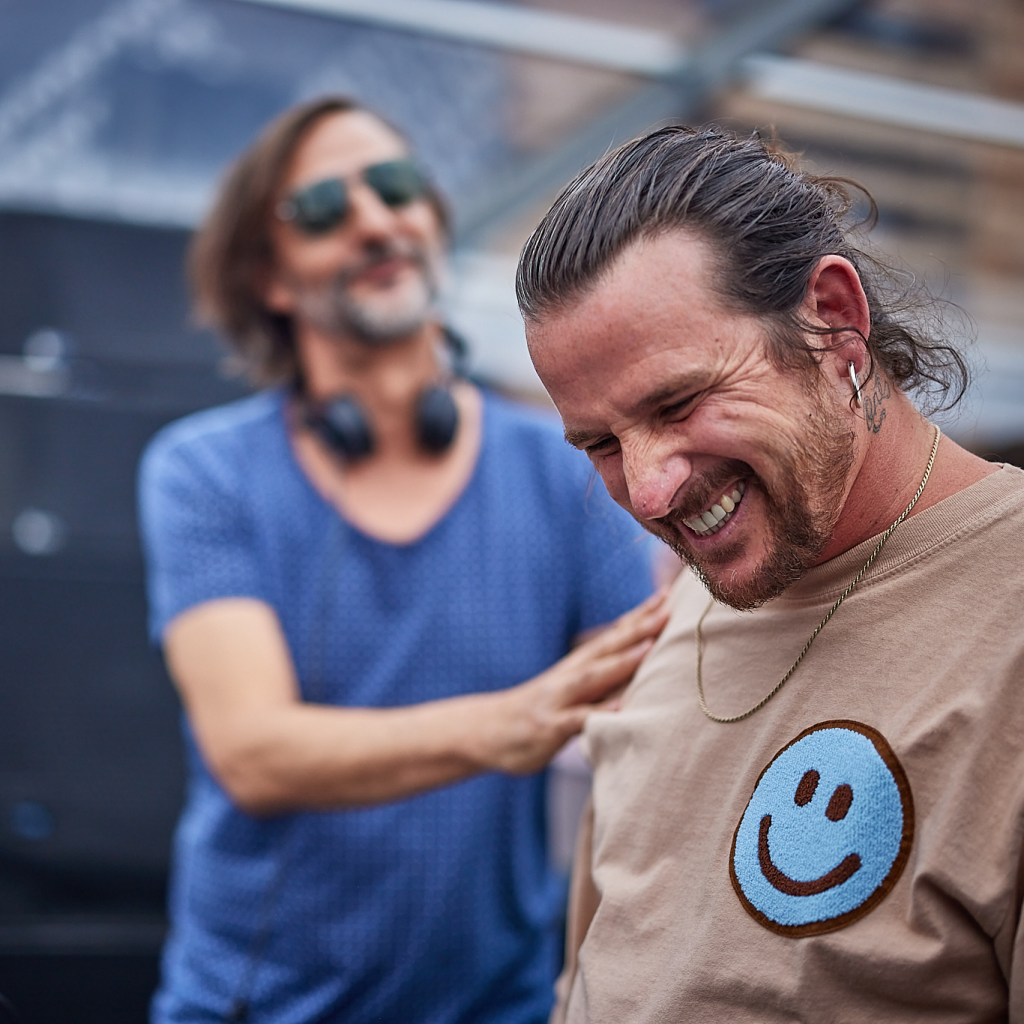
More recently, you went on an expedition to the Arctic with world-renowned explorer Mike Horn, as part of your Arctic Sounds project – how did that come about?
“It was actually thanks to Caprices that I met Mike Horn. The kind of thing when people introduce you because you have a lot of things in common. Mike came to my house for a BBQ, it was very relaxed and we started to brainstorm. He’s involved in a new form of energy using hydrogen batteries and he had an idea, to do the first DJ setup floating on an iceberg, using this battery. For me, the DJ thing is something I work with and I travel with, but when it comes to something so precious like visiting the Arctic, I wanted to do something different. I wanted to record the sounds of cracking icebergs, to record the sounds of nature. From that point on we started exchanging ideas and it took about a year to put the project together.”
It must have been pretty special after a year of working on that to go and do something so extraordinary…
“It really was. I’ve travelled the world and generally I have adventure in the core of my heart – I would be the one to go get lost by rivers or in the forest. I’ve seen isolated places before, but there has been nothing compared to this. It’s hard to describe because where we went is so remote, so precious and so beautiful, but at the same time it’s so hostile. The sound of ice cracking was really something, it’s louder than thunder and you’re right at the front watching these huge icebergs cracking and falling into the water. It was really extraordinary, one of the greatest experiences ever really.”
Do you already have some ideas of how you will infuse the special and unique sounds that you recorded into the music that you plan to make?
“I already have a skeleton of the album. I actually took my things with me to start composing music there and it was the best idea – every time we were back from a trek or an adventure, I was so inspired and I started making music. Don’t expect it to be dance music – this is going to be ambient music that reflects the place where I was. Harmonious electronic music, invaded by sounds that I recorded. For example, during the evening I recorded for eight hours the sounds of the arctic, when the light was at its softest. I also recorded Inuits, local people speaking in their own language. I’m planning to put a complete audio from beginning to end, the Sound of the Arctic. Like a trip! Creating consciousness through love, something to be shared.”
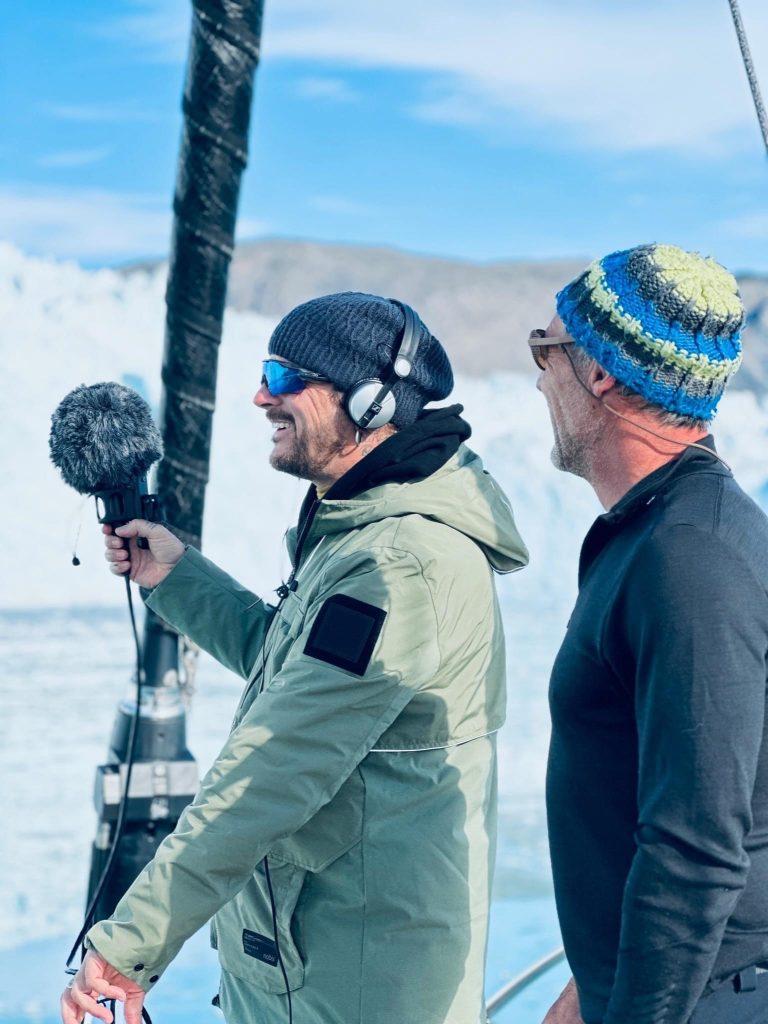
Let’s take a look back at some key milestones in your career – you moved to Chile when you were quite young and this is where you first became aware of electronic music. What was it like back then when you were getting started?
“My first musical engagement was actually not electronic music – Chile was a country of rock and roll. I got involved with a band at school and was playing guitar. We were poor, I had just enough money to get my guitar and I had to learn it on my own. I was using my ears to translate the music, it was a weird way of learning to play. Hanging out with people, copying people – I think this made my ears very sharp, very precise, especially when it came to rhythms and melodies. One time I came back to visit my Dad (in Switzerland) and I saw a bunch of friends from Europe – they got me into this DJ thing. At the time I was thinking “electronic music, it’s not music at all!” Anyway I got stuck with these two turntables and I found it attractive, obsessive – I had to try to put these records together. I ended up buying more records and I took them back to Chile.
“In Chile, there wasn’t so much going on for this sound. I became friends with Siddharta, one of the initiators of the electronic music scene in Chile, and Adrian, the half little brother of Dandy Jack (who was living in Germany). We started making small parties here and there and Adrian was always talking about his big brother. Dandy Jack played a big role in connecting the elite of music – he brought Ricardo, Atom Heart, and some really interesting people over to Chile.
“It was difficult to access the country at this time because it was so remote. It was difficult to access information outside, to have records. We were six people, each with 20 or 30 records and we would play those records the whole year, exchanging with each other from time to time. To be honest, we created a scene on top of that. We started with small parties. Every six months, then once a month, then once a week – we were coming from a country of rock and people were looking at us like “what the fuck!?”
“But we were pioneers in this – we created a small scene, a family, and we knew we were building something up. Atom Heart moved over and he really influenced a lot of the ‘click clack’ electronic sound. There was an influence of native music like rock and folk. Combined with this electronic, it gave birth to a more modern style of dance music. Chile suddenly had this burst of incredible producers that came out of that era.”
Being in this group pioneering the Chilean scene, I guess you learnt a lot not just about the music but also about the setup of parties and promotion?
“100%. I learned about community. First I was blessed to be part of an incredible community of beautiful people and we were graced with something absolutely brilliant, completely new to its time. When I got the first machine in my hands, I thought wow – with a drum machine, I can compose drums even if I’m not a drummer and I can play my guitar on top of that. I still have DAT recordings of that era and it completely changed my life forever. Today the idea is still the same – it’s a one man orchestra.”

Let’s fast forward a bit…something took you to Berlin – what was that and what was happening around that time?
“Clearly – it was Ricardo! Since I was really young, the first moment I met him we became super close friends. Me, Martin (Dandy Jack), Adrian, Ricardo, the sisters, the mothers – we were always together, it was a family thing. Before I left Chile, something stupid had happened to me and I was jailed. After that had happened, I knew I needed to leave. I also knew I needed to make music, but Chile wasn’t the place to do it. We decided “let’s get the fuck out” and we went back to Europe.
“We went to Switzerland because I had a Swiss passport, but it was really difficult. We were living in a squat, we had no money. My wife was pregnant and it was just unaffordable. I came from a poor background, I had no resources. Ricardo was living in Berlin and he said “come here!” It was a really cheap place, an empty city back then. So I moved there – we were all living in the same apartment building. But it was the wrong time in my life. I was the youngest, but I was also the only one with kids. And there was a LOT of party. At one point, Berlin took over me and I decided after a while that I needed to move out again. I always said “it’s good to be in the middle of everything because it gives you so much inspiration”, but I actually find that the more isolated I am, the more I can find myself. If I am influenced, I will try copy something. So in the end, I left.
“This was the beginning of Club de Visionare (CDV). I also remember my first gig at the Panorama Bar, in 1999 or 2000. Berlin was a city of free people! You have to also understand the history of Berlin – they were the children of a generation that came through the biggest abuse of human rights and so they told their kids to be free, to love each other. Berlin had an incredible rebirth after such torture and trauma, it was like an empty book, to re-write the history of that city. Nowadays I don’t recognise it, it’s really different and got so expensive but for many years, Berlin was the last place on Earth where you could build your city to the colours of the youth.”
You were already involved with CDV before you moved out of Berlin?
“If you go to CDV you’ll see the first flyer – it was Ricardo, myself, Guido Schneider, Sammy, Zip…we were there every Wednesday. We would sit there and do live sessions. It was kind of a little bar, the same as it is today but much smaller and much less organised! I mean it’s still not really organised, it’s an organised chaos…I love it! My favourite place on Earth. It’s just about the music there. There aren’t many places where you have such complete freedom when it comes to playing. Ricardo and I would always go there and invite people, that’s how we met Cassy and so many other people, just by jamming. It was really really fun – I miss it and sometimes I wish I could still live in that community, but I know myself when it comes to excess!”
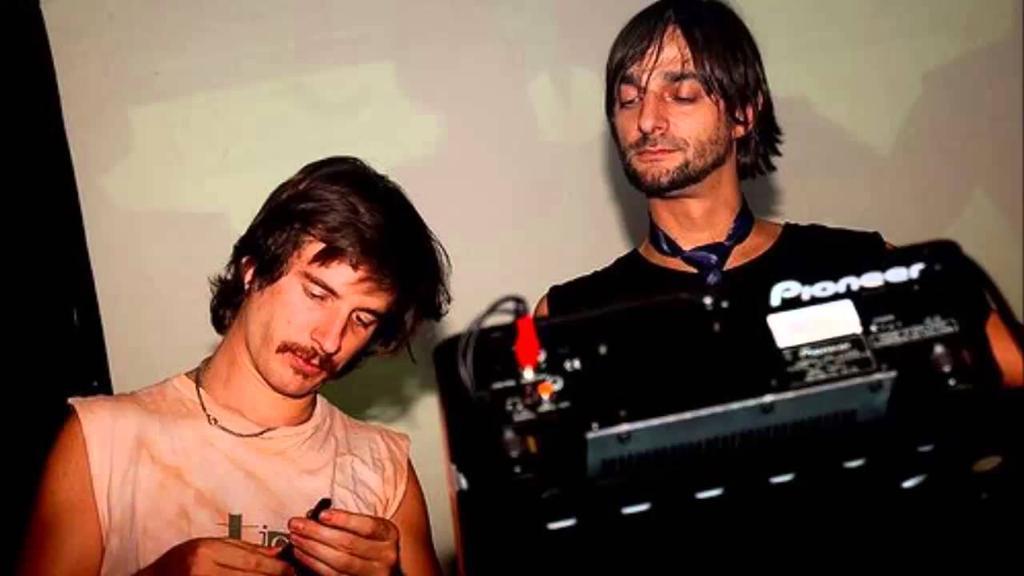
If you think about some of the iconic labels from around that time such as Perlon and your own Cadenza Music, how influential would you say these labels were in shaping the sounds of electronic music back then?
“They played and they still do play an incredible part of this musical niche that has been going all of these years, and gave birth to many others also. There was also Frankfurt with Playhouse & Klang Elektronik, which I always felt very connected to. Playhouse has a minimal vibe but more housey, and they completely changed the shape of the music.
But when it comes to my main influences, it really was Detroit for me. Juan Atkins, Metroplex – this was the music that twisted my brain, the key records I remember from when I was very young, for the first time trying drugs. I didn’t even know about minimal music before but my brain connected and suddenly, I understood how something so simple could be something so complex.
“I always say “it’s much easier to make a track full of noise, than to make a simple track”. Simple tracks require so much more attention, knowledge and intelligence in order to make it sound like it’s not just a loop. I got obsessed with it – how to make a loop eternal.”
You talk about loops and how to hold longevity whilst keeping it interesting. Traktor also opened this up not in the production of a track but the technology that allows you to use loops in playing different tracks. For a while you were using Traktor and favoured that as the main tool in your DJ sets, but you’ve shifted back away from that in recent years. Why is that?
“A few factors really – with total honesty, my insecurities. The scene is always giving opinion about things. That’s not me, I’m more optimistic. When I see a new technology I want to play with it, I NEED to try it – and that’s what I did (with Traktor). Then COVID came, I couldn’t have a tour manager which is required for that more technical aspect and in a way I was forced back to the CDJ. And I thought “you know what, this is also cool, I like it!” It’s more simple, you can just come and connect your things and it works. People were saying I was coming back to the cool thing. But to be honest, I’m not trying to sell something – I’m just trying to have fun.
“Ricardo and I were beta testers for Ableton when that came out. We come from a time where sampling was a big issue. To put a sample right it would take like half a day. Suddenly Ableton was introduced and it was like wow fuck! You could immediately put it to the right tempo. I remember we were showing it to a few people – when that came out it was a big revolution. Then Traktor followed and you were able to sync…
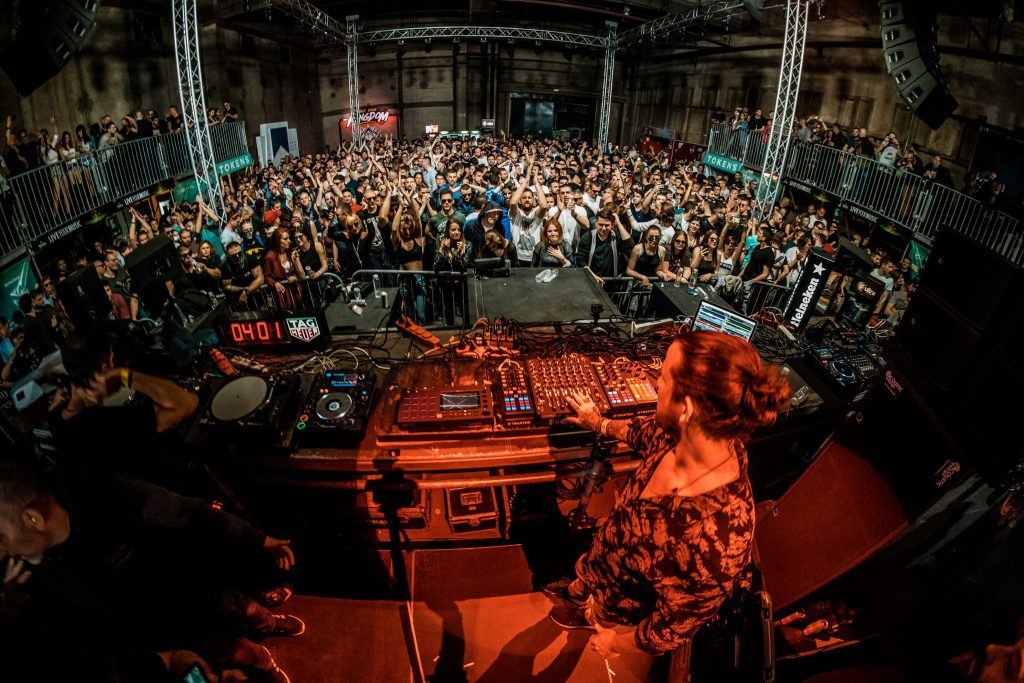
“You had a whole bunch of people saying that syncing is boring, they are just learning how to DJ and they think that sync is a way to do something that you can’t already do, to mix tracks together. Then you have the older generation, thinking “that’s not why I’ll use it. I’ll use it because I can sync four sources of music at the same time!” And I liked to use it because, fuck Shazam – there was nothing in my set that you could Shazam, because it was a constant creation.
“But then you get into the loop of playing too much, repeating shows – I was doing 180 shows a year! It’s inevitable that you become like a robot. You’re tired, you’re on drugs, and you don’t want to do it, so you start to repeat yourself. Fatigue kills creativity. And so I reduced my shows down. My creativity is better when it’s rare.”
I wondered if your Living Room Sessions gave you a reconnection back to all your vinyl. You were putting out these broadcasts playing through your vinyl collection, pretty much every day during the pandemic. Having all that time back on the records, did that influence you to put Traktor to one side?
“I’m not sure really. It was something I had on my mind for a long time. Time is something that doesn’t exist in my life, I’m constantly trying to find the time to do things. Suddenly Covid came and to be honest this was the first time I actually had time. I had moved houses a lot and I needed to clean up my record collection, arrange it into genres. I started doing this and Idriss, a dear friend of mine was here. He said “why don’t you play music for the people?”
“I have no idea about this streaming and shit, but I started listening to my music – I have such an incredible music collection and I have always loved vinyl, I still do. The only thing that stopped me from DJ’ing on vinyl was because of the setup – 90% of promoters, they don’t know how to do it and most of the time I couldn’t play. And the transport, I’ve had my record case stolen maybe four of five times. Every time I had pearls in there – I was heartbroken. These are my treasures…
“So I don’t think the vinyl sessions pushed me to do things differently. But I did fall back in love with the fact that I was hearing the music as it was designed and it really got me. Our musical culture is so fucking rich, so incredible and beyond every format that we hear in stupid pop music. On our side we have never lost this richness of sound and depth, experimentation and creativity and that’s where it really brought me back from being spoiled of playing too much. Suddenly I was grounded and I thought ‘you’re fucking lucky really’ and to be honest – I just needed a break. That’s what I had been missing.”
Let’s talk about your own label Cadenza. After a few quiet years, you’re about to celebrate the 20th anniversary of this iconic label. Can you tell us more about what’s been happening with Cadenza and what’s coming?
“At one point Cadenza was like a mega enterprise. We had 25 artists on the booking agency and we had so many parties – I had 50 people hired at one point. I was on the move and there were things not being done properly on the administration side, and I was getting fined for many things. I was really fighting back to not sink my family with it all. It took every single piece of me to fight back from this. I realised it had gone from something very simple that I started with my sister and Phillipe (Quenum) to something that was just too much. I sacrificed so much to provide the best experience for my artists, but people were expecting more than I could give.
“Cadenza is an artisan thing, we are a very simple, down to earth label and it didn’t feel like that any more. So I pulled out and to be honest, we were going to be closing the label for the 20th anniversary – I’d made the decision to shut it down…
“I’ve made a book, it’s a beautiful stunning book from the last 20 years of Cadenza and during the process of making this book, I had key people coming back to me. They were like “you can’t close it, whatever has happened! Just take the time to listen to the music you’ve put out.” One day I did this exercise and I almost had tears in my eyes, because I couldn’t find one piece of music that I could say was bad or uninteresting.”
Alex Picone – ‘Floppy’ is still one of my favourites even now…
“Exactly! All those tracks, I realised Cadenza is a piece of history in music. I was also seeing a younger generation trying to reach out to me again that was inspired by all this with a sound that was even more modern, even more classy. It was so good, that suddenly the light came back. I realised they’re right, I can’t stop.
“Now I want to bring Cadenza back to how it was, two guys, releasing cool artists on vinyl and that’s it – it’s only about good music and the rest is history. Now I have records coming into my hands and it’s just too good, I can’t deny it. These young artists are expecting so much out of me. I and others inspired them and I have a responsibility to help them like I was helped, when I was young. It’s exactly the mechanism like when I realised my first record – I’m back at my roots. Now, it’s the rebirth!”
What can we expect from the first release?
“We have some really cool releases planned – Arapu, Reboot, Tuccillo. We also have some younger, incredible artists that I’ve found. I am super excited again, like the first day I ever did music! Currently we’re organising some administration, but the first record is ready and it’s just a matter of time now…”
By this point what was originally a 30 minute interview had already turned into 60, so we thought we better leave it there. A huge thanks to you Luciano for your time and a very interesting conversation!
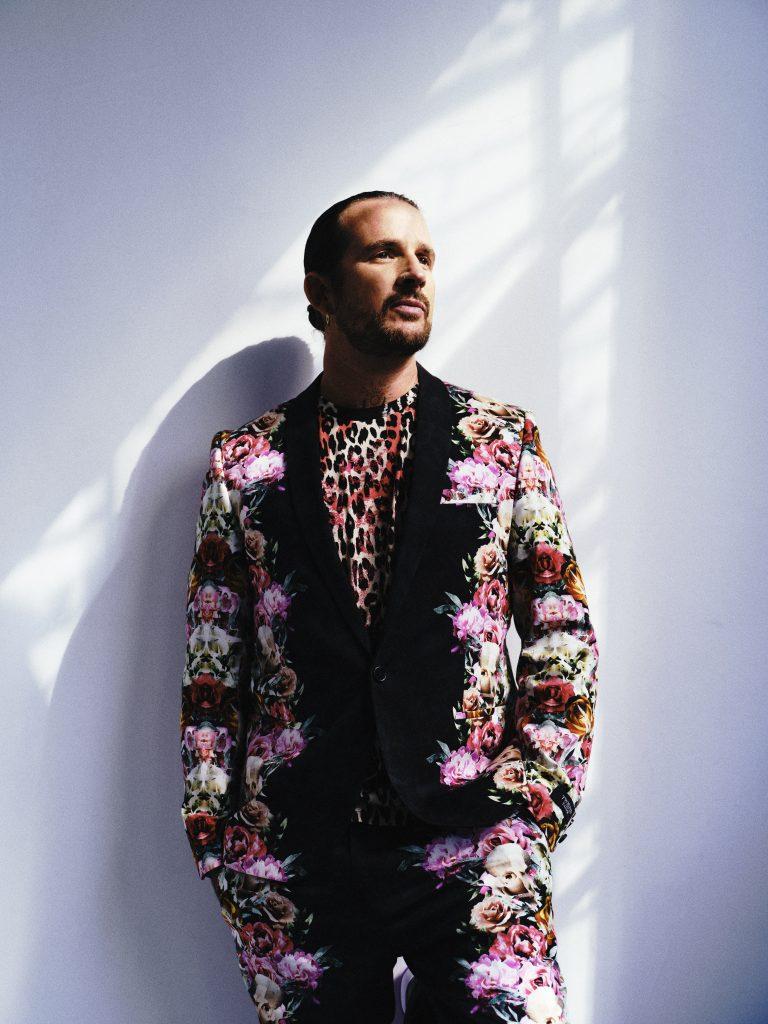
More info on Luciano
Facebook | SoundCloud | Instagram | Discogs



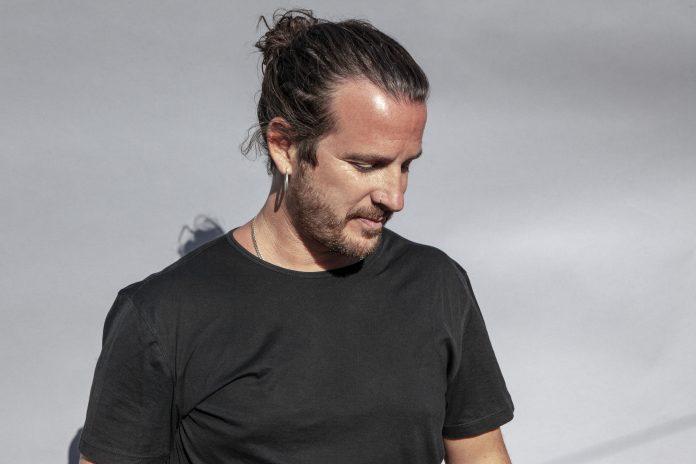
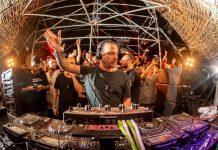
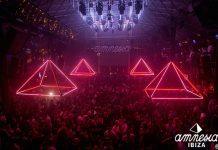
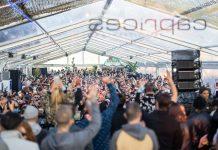
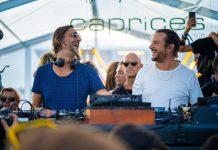
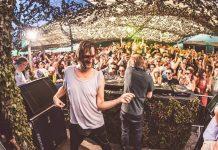
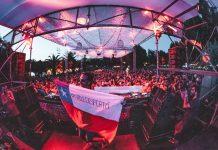
![Premiere: A2 – mrelss – Season of Reason [AMAM044]](https://trommelmusic.com/wp-content/uploads/2026/02/label_side_A-Alessio-Mereu-324x235.jpg)
![Premiere: 2 – Santon – Only a Test (Alain de Saracho Remix) [SDR012]](https://trommelmusic.com/wp-content/uploads/2026/02/Santon-Only-a-Test-EP-Artwork-Alain-de-Saracho-100x70.png)
![Free Download: Zombies in Miami – What Ya Doing [TFD128]](https://trommelmusic.com/wp-content/uploads/2026/02/photo_2026-02-12-10.38.24-e1770892750337-100x70.jpeg)
![Premiere: 1 – DAT (Italy) – Not My Plan [SENS001]](https://trommelmusic.com/wp-content/uploads/2026/02/IMG_9750-Sensazione-Stupenda-100x70.png)
![Premiere: B1 – Kolhida – Break And Escape (Cezar Lazãr Remix) [TTM003]](https://trommelmusic.com/wp-content/uploads/2026/02/IMG_2883-Aleksandr-Gocheleyshvili-100x70.png)
![Premiere: A1 – JJ Fortune – Design [LNS10]](https://trommelmusic.com/wp-content/uploads/2026/02/1188556-100x70.jpg)
![Premiere: A1 – Alexander Skancke – Saga Of Subvision [QRK015]](https://trommelmusic.com/wp-content/uploads/2026/02/photo_2026-02-03_17-31-24-100x70.jpg)

![Premiere: A1 – Light Blue File – JUNIOR [RCR002]](https://trommelmusic.com/wp-content/uploads/2026/02/RCR.002.FRONT_.LABEL-Will-Gilliland-100x70.png)
![Premiere: A2 – Lisovskyi – Just One Good Whiff [FIB004]](https://trommelmusic.com/wp-content/uploads/2026/02/B-100x70.png)